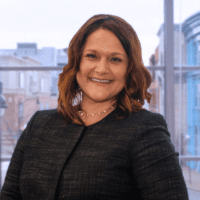Special Education Case Comparisons
Parents, students, teachers, and school communities have struggled to provide appropriate instruction during the pandemic. Challenges have arisen with the use of technology, providing content for both online and in-person instruction, tracking attendance with the recommended amount of leniency, and addressing special needs all while following the recommended safety measures.
During the mandatory shut-downs school districts were required to provide continuity of instruction and were still required to provide Free Appropriate Public Education (FAPE) to special education students. In the cases mentioned below, one district chose to ignore a student’s failure to access remote instruction, while the other continued to hold meetings and offer programs to parents. Clearly, the latter school’s choice to offer programs protected the district from liability for lack of progress during the pandemic.
Case #1: Failure to Adapt to Remote Learning
A special education hearing officer found one school district’s failure to reconvene an IEP and address the challenges of remote learning denied a student a FAPE – noting the flexibility provided to schools during school closures. The district’s failure to address a 5th grade student’s lack of engagement amounted to a denial of FAPE. “When faced with a student’s resistance to distance learning for her special education goals and objectives [the state ed] did not convene the [IEP team] to consider other alternatives, changes in the Student’s program or delivery method or to develop a BIP to address those behaviors.” This school failed to take any action.
Case #2: Parental Stonewalling
In contrast, a parent’s stonewalling was found to contribute to the lack of services to the student during the closure. A student with multiple disabilities struggled during remote instruction. The school district found the student’s unique needs required a program where the IEP could be implemented. The parent refused to work with service providers, cancelled meetings and did not respond to requests by the district to begin the program. Finding the district efforts impeded and obstructed by the mother’s refusal to participate or provide consent, the Hearing Officer found the school district did not deny the student a FAPE. In this case the school district was able to demonstrate that it attempted to provide the student a special education program.
It is crucial to remember that school districts that are unable to provide certain services during COVID closures have the authority to convene a team meeting and determine to what extent compensatory education is owed. A timely offer to address any services missed will avoid hearing officer findings against the district for failure to implement and denial of Free Appropriate Public Education (FAPE). Contact your special education counsel for further guidance.


